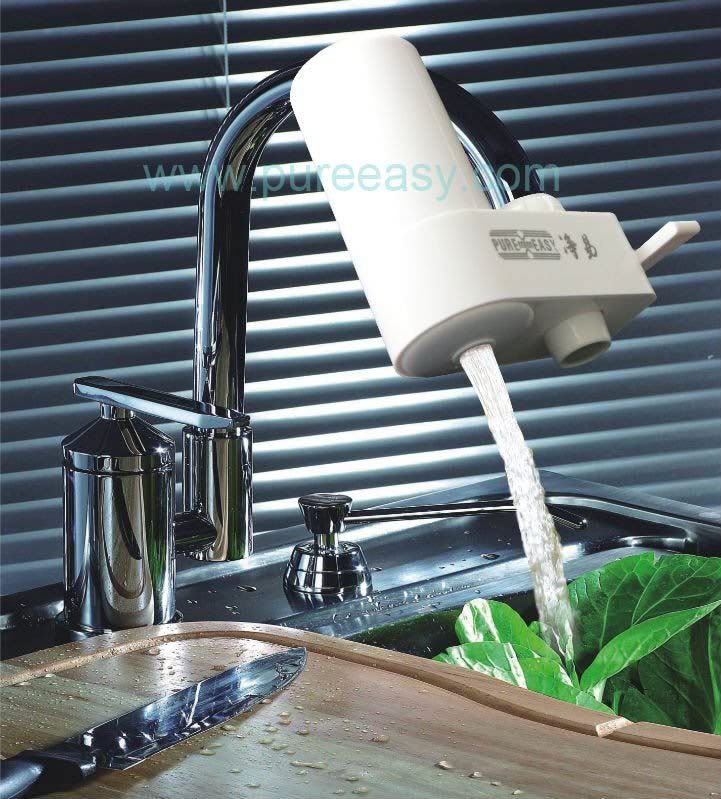We are all bombarded with messages about the safety and purity of the water we drink. Do we drink purified water? Spring water? Water from the tap? Just what type of water is most healthy to drink?
The bottom line is that we need water. Our bodies are at least 60% water. According to Elson Haas, M.D., in his book, Staying Healthy with Nutrition, "It is the primary component of all the bodily fluids: blood, lymph, digestive juices, urine, tears and sweat. Water is involved in almost every bodily function: circulation, digestion, absorption, and elimination of wastes, to name a few. Water carries the electrolytes and mineral salts that help convey electrical currents in the body..Water requirements vary greatly from person to person. The climate in which we live, our activity level and our diet all influence our need for water."
Water isn't just liquid to drink. Water provides us with minerals and trace minerals that are absolutely necessary for life. So, when we are choosing which water to drink, we need to think about how we are going to get the water with the most natural balance of minerals. We also need to consider whether our water has been contaminated with unwanted organisms or if the water has been treated with chemicals that could compromise the balance of minerals.
Most tap water in the U.S. today is treated with chemicals, such as chlorine, phosphates, and other chemicals, to clear our unwanted organisms to make it safe for human consumption. The only problem is that air pollutants and other contaminants may not be filtered out of the water.
There are so many things that can contaminate our water supply: fertilizers, pesticides, animal waste products, and now even pharmaceutical medications. In March 2008, the Washington Post reported on a study done on the water supply in Arlington, Virginia by the U.S. Geological Survey and the U.S. Department of Agriculture that found small concentrations of pharmaceutical medicaitons- anti-seizure medications, antibiotics, and anti-inflammatory drugs- in the water. The article goes on to state that in another research study "pharmaceuticals, along with trace amounts of caffeine, were found in the drinking water supplies of 24 to 28 U.S. metropolitan areas tested. "This was the first federal research on contaminants in water supplies throughout the U.S. and what an eye opener for the scientists. Is it any wonder that we need to be concerned about what type of water we choose to drink?
Types of Water:
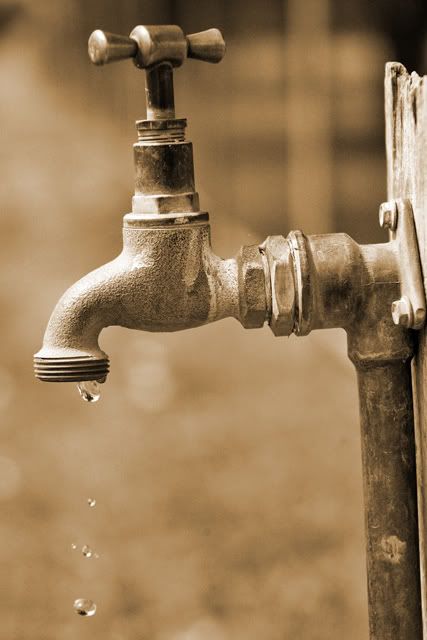
Tap Water: Most tap water is contaminated with a host of pollutants that increase your risk of serious health problems.
- Arsenic: poisonous element that is a powerful carcinogenic, which has been linked to an increased risk of development of several types of cancer. (Check out the USGA website to see maps that show where and to what extent arsenic occurs in ground water across the U.S. Click here for map )
- Aluminum: has been linked to the following health concerns:
- Alzheimer's Disease
- Hyperactivity
- Learning disabilities in children
- Gastrointestinal disease
- Skin problems
- Parkinson's Disease
- Liver disease
- Fluoride: this has been thought to prevent cavities and helps build strong teeth, but you and many others have been fooled. As this recent study done on children in India shows, fluoride is anything but a cavity fighter. Fluoride is a well know toxin that actually leads to an increased risk of cavities and can cause a wide range of health problems, including weakening your immune system and accelerating aging due to cellular damage.

Bottled Water: 40% of bottled water is bottled TAP WATER, which may or may not have received additional filtration. There was a recent study done by the Environmental Working Group that found arsenic and disinfection byproducts (a very powerful carcinogen) as well as 36 other harmful pollutants were hidden in bottled water.
Drinking from a plastic bottle is not a great idea either. Plastic bottles contain a chemical called Bisphenol A or BPA, which is a synthetic hormone disruptor that has been linked to serious health problems such as:
- Learning and behavioral problems
- Altered immune system function
- Prostate and breast cancer
- Risk of obesity
- Early puberty in both genders
*** recommend a stainless steel water bottle (make sure it is stainless steel inside as well), a glass water bottle or if you are hung up on the plastic water bottles look for it to say BPA free****
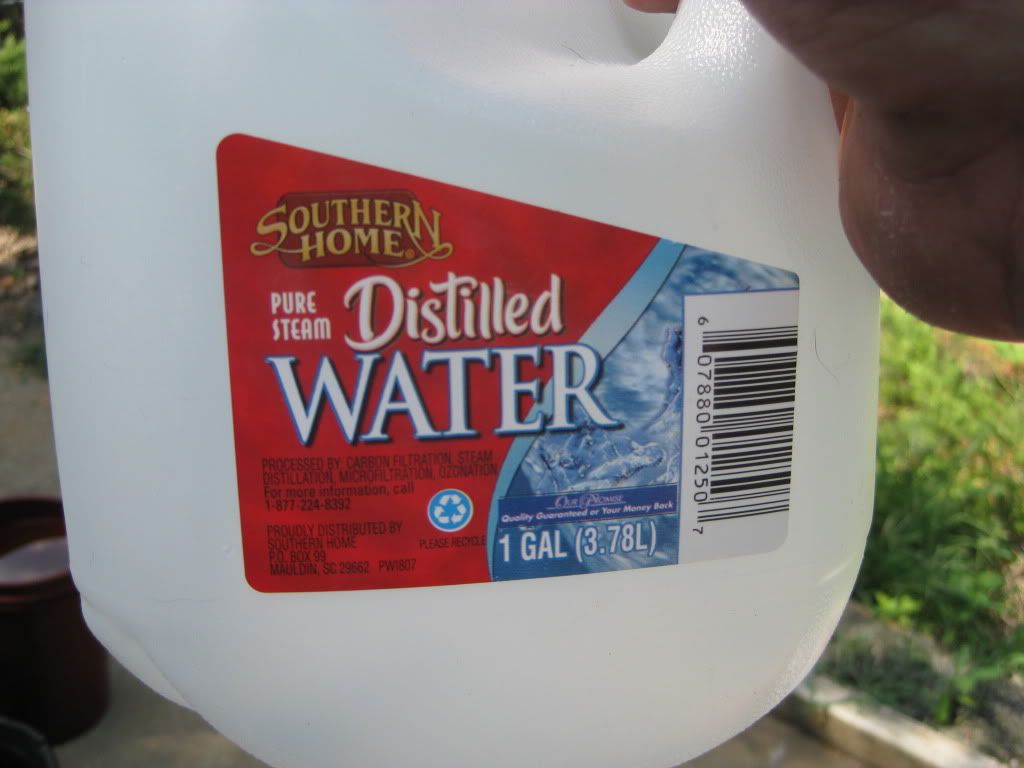
I only recommend using distilled water for a short period of time and only for the purpose of detoxification, as this water can help pull toxins from your body. Drinking it long-term, however, will most likely invite health problems.
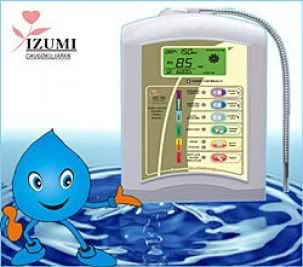
Alkaline Water: some people experience an initial "high" when they start drinking alkaline water. This can easily be attributed to detoxification, and the fact that they are likely just becoming better hydrated. Detoxification is about the only benefit of alkaline water, and this benefit is limited to very short term use (no more than a week or two). An additional concern is that many individuals have stomach dysfunctions like GERD or ulcers that are largely related to having too little stomach acid. Long term use of alkaline or ionized water can interfere with your body's natural digestive process by reducing the acid needed to properly break down and absorb food. This could then lead to an upset of your body's good bacteria, which can then open the door to parasitic infection, ulcers, and malabsorption.
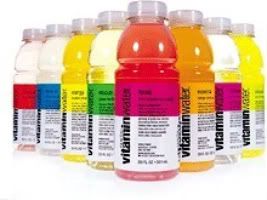
"Vitamin" Water: nothing more than a clever marketing scheme designed to promote a product that is just as unhealthy as soda! Vitamin waters contain dangerous high fructose corn syrup, artificial colors, additives, preservatives and caffeine. Whats' even worse is these manufacturers use distilled water to make their products, which as you've read above is one of the worst types of water you can put into your body!
Filtered Tap Water: this is one of the best choices you and your family can make. There are three different types of water filters... weigh your pros and cons of each.
- Reverse Osmosis Filter: removes chlorine, inorganic and organic contaminants and 80% of fluoride and most DPBs. The major draw back is the expense of installing and RO filter as most need a plumber to get it up and running.
- Ion Exchange Filter: removes dissolved salts in the water, such as calcium and softens the water. This system was originally used in boilers and other industrial situations before becoming popular in home purifying units, which usually combine the system with carbon for greater effectiveness.
- Granular Carbon and Carbon Block Filters: the most common types of counter top and under counter water filters. This filter is recognized by the EPA as the best available technology for the removal or organic chemicals like herbicides, pesticides and industrial chemicals. The downfall is that the loose material inside can channel-- the water creates pathways through the carbon material, escaping filtering.
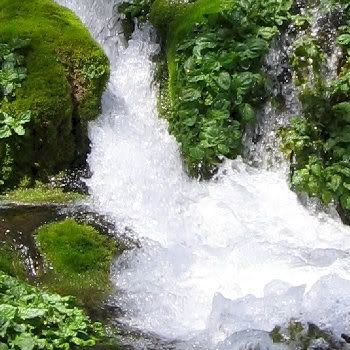
Living Water: the ideal pH of your water should be between 6.5 and 7.5, which is neutral. Mountain spring water is in this ideal range. It is some of the healthiest water on the planet because it is "living water". There is a great website called www.findaspring.com where you can find a natural spring in your area.
The best part is that most of these spring water sources are free!!!
***There is one called Mt. Vernon Springs in Siler City****
Dr. Tri Myers
Omega Chiropractic Center
107 Edinburgh South Drive, Suite 141
Cary, NC 27511
919-462-0016
twitter: @DrTriMyers
Linked in: http://www.linkedin.com/in/drtrimyers

